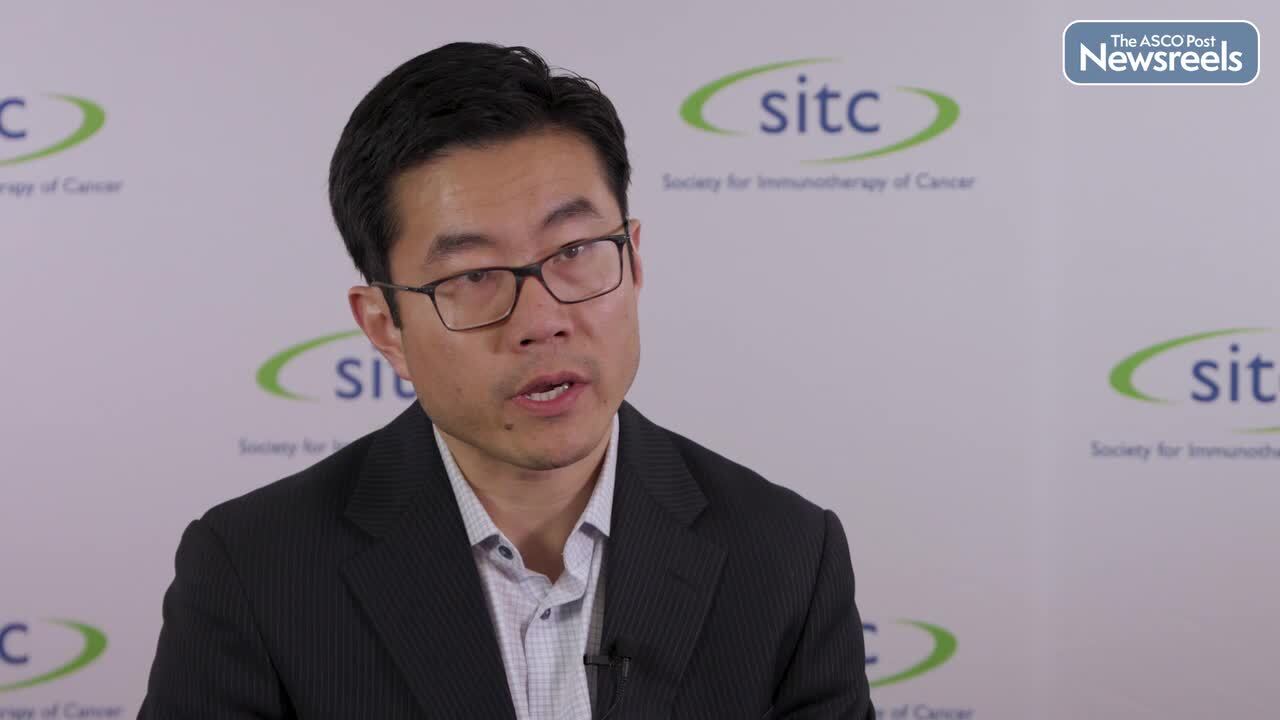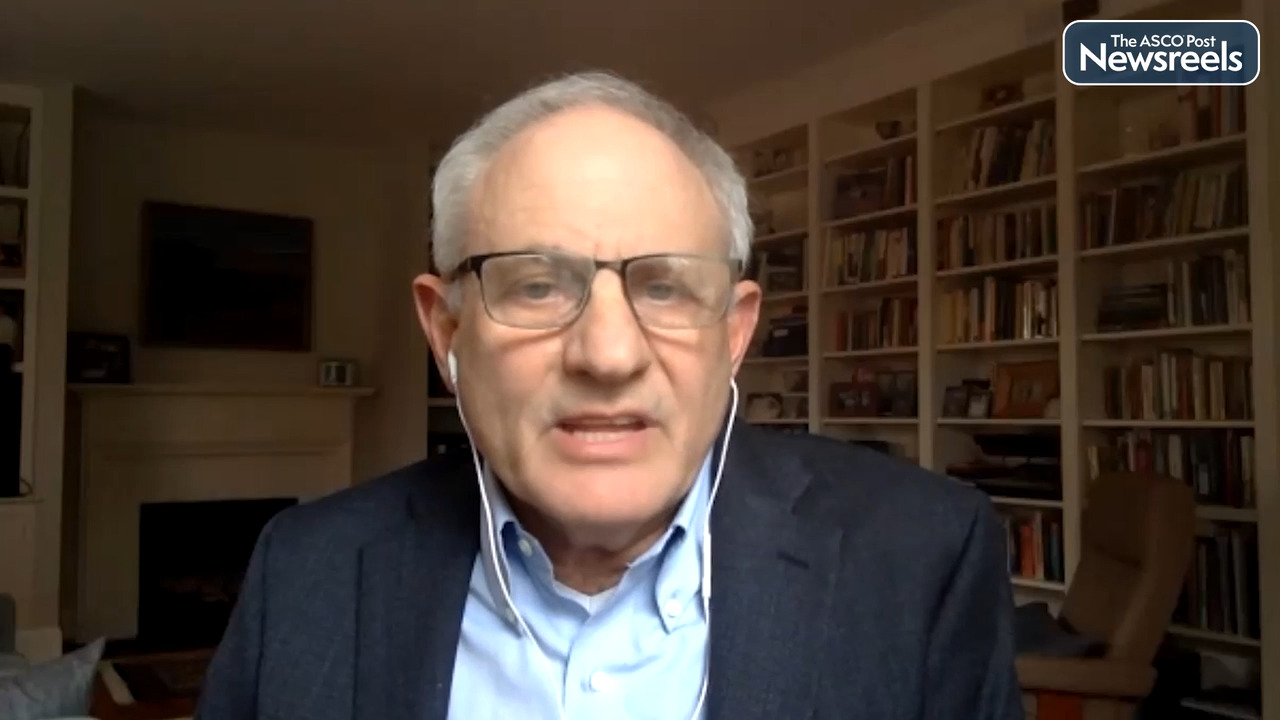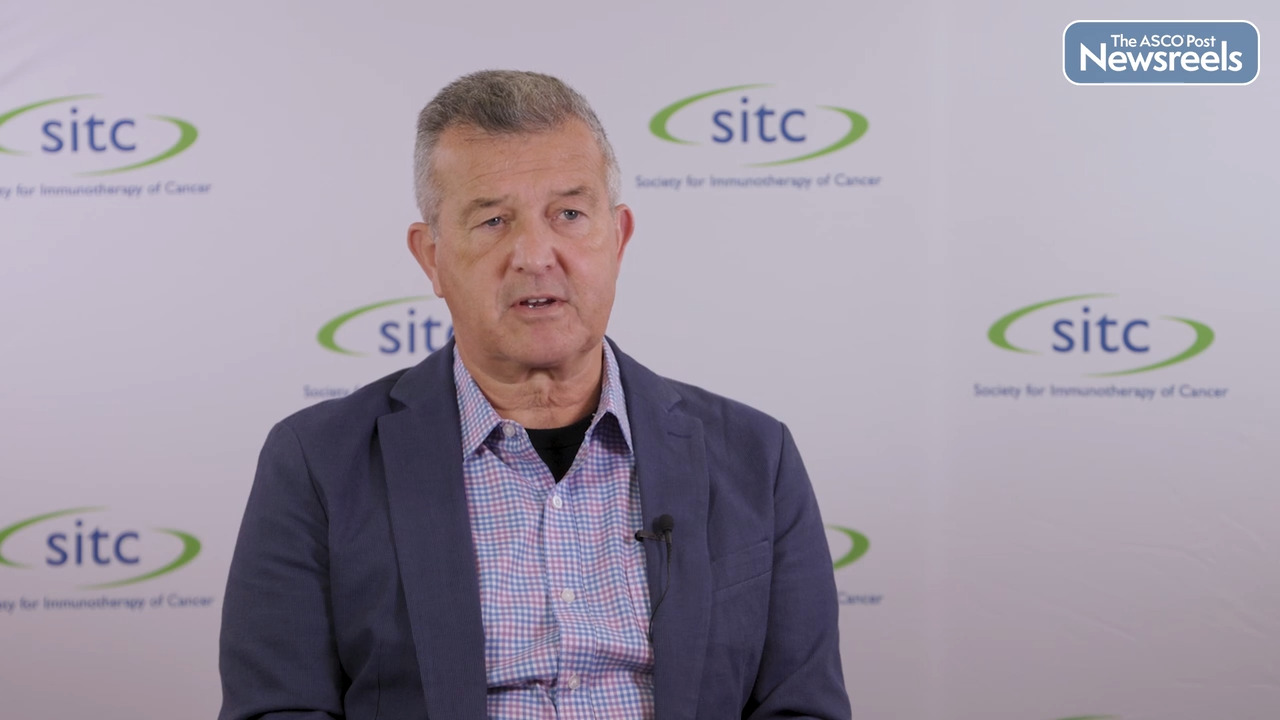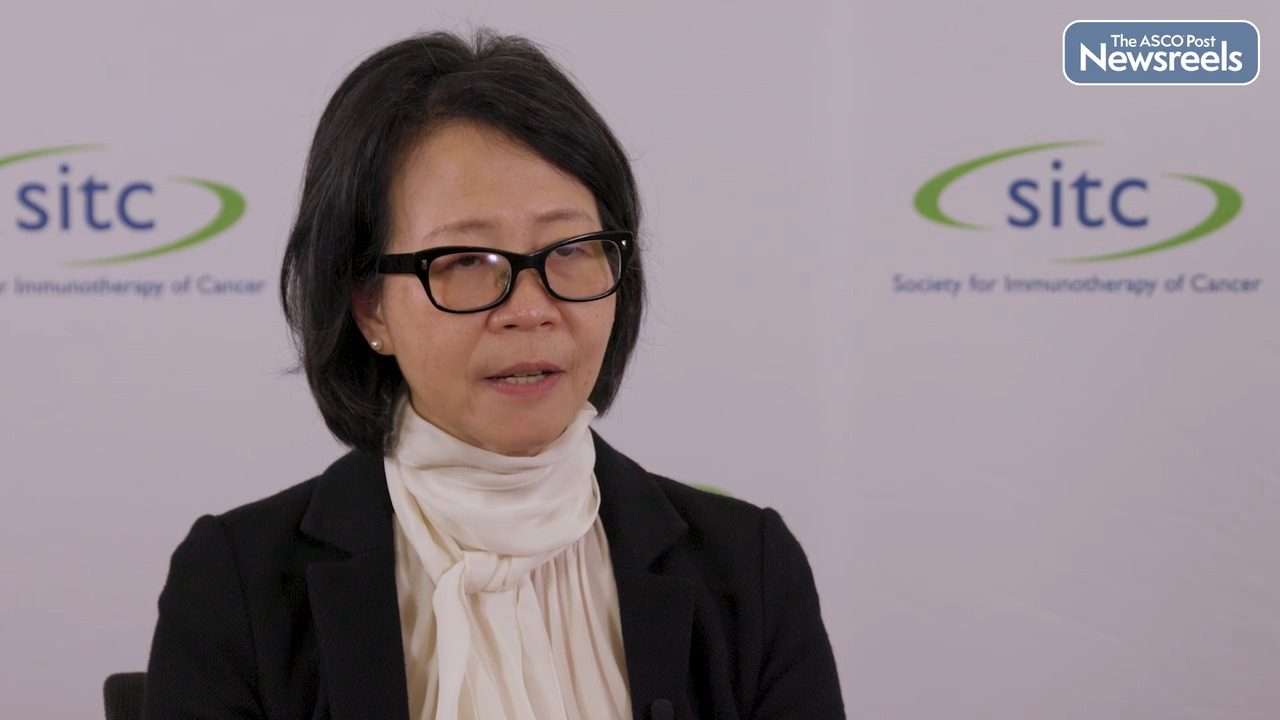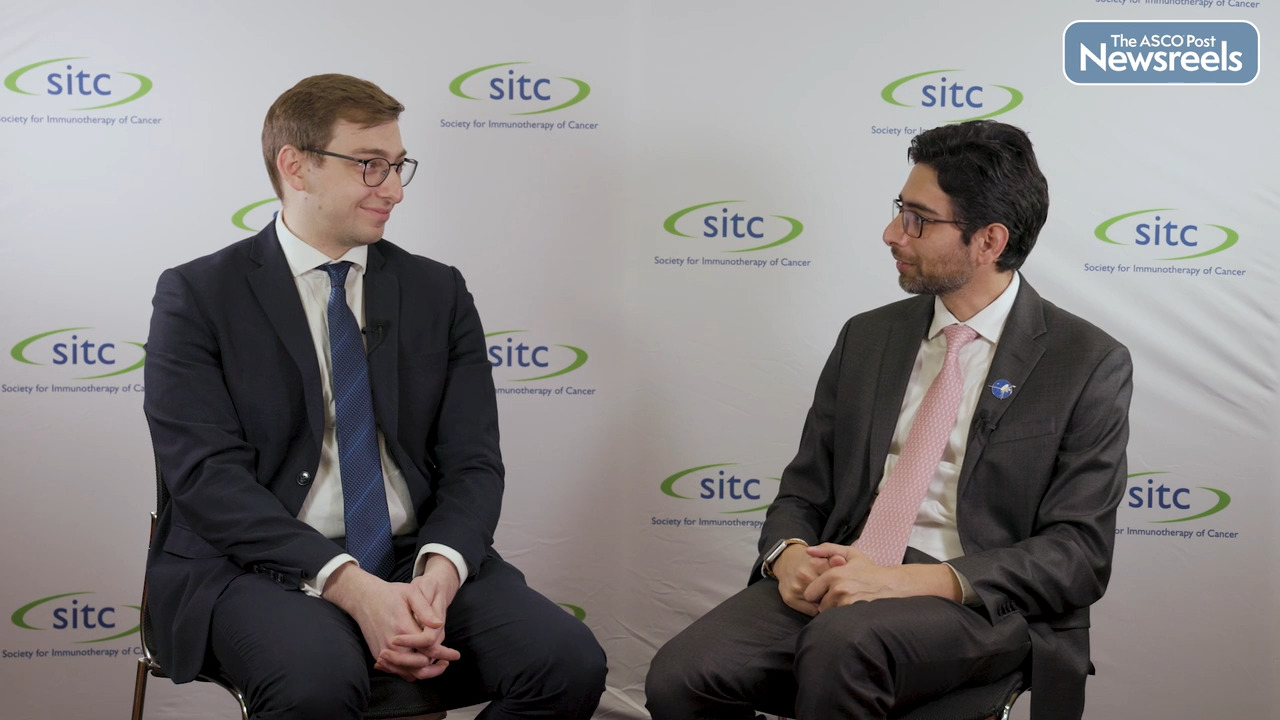Transcript
Disclaimer: This video transcript has not been proofread or edited and may contain errors.
Renal cell carcinoma, we have an exciting array of available therapies, including VEGF inhibitors and checkpoint inhibitors. The challenge for us though is that it's a small fraction of patients that are actually cured of their disease. With that in mind, it's really critical that we look to new treatments and new pathways, and actually cell therapy represents one of those potential avenues.
We usually think about cell therapies in the context of liquid tumors, for instance, myeloma and lymphoma, but the COBALT-RCC study sought out to test whether or not CTX130, which is an allogeneic CD70 directed CAR-T cell, could potentially have an impact in this disease. CD70 is a target that's very pervasively expressed in renal cell carcinoma. It's also expressed in some cutaneous T-cell lymphomas as well.
So the COBALT-RCC study included patients who had actually received one prior VEGF inhibitor, one prior PD1 or PD-L1 inhibitor, and thereafter, they were allowed to potentially participate in the trial. Patients in this study were actually quite heavily pretreated. Patients received CTX 130. As I'd mentioned, it's an allogeneic CAR-T cell directed at CD70 with a couple of key edits.
We actually removed CD70 from the cell to prevent fratricide, the T-cell receptors removed and MHC1 is removed as well. There's also a locus, of course, that's anti-CD70. In the study, patients were allowed to receive lymphative bleeding chemotherapy with Fludarabine and Cytoxan. They thereafter received CTX130 as a onetime infusion. Patients were allowed to re-dose, and ultimately, we enrolled a total of 14 patients that we presented [inaudible 00:01:49].
I was really impressed with the fact the toxicities we experienced were very limited. About half of patients had grade one to two CRS, but we didn't have any grade three CRS events. There was no ICANS or graft versus host disease. And one thing that is incredibly, incredibly exciting, and this I think is really going to hopefully bring a lot of attention to this type of therapy in the field, is that we had a patient who actually achieved a complete response. Not only that, but this complete response has actually been durable.
The complete response has lasted now for a total of two years. There's an array of other patients in the study who achieve stable disease as a best response. And again, I think we're looking forward to developing this therapy in the future as a later version, CTX131, with some additional edits that we think are going to enhance activity and also enhance efficacy. With that, I think the future is bright for cell therapies and renal cell carcinoma.
